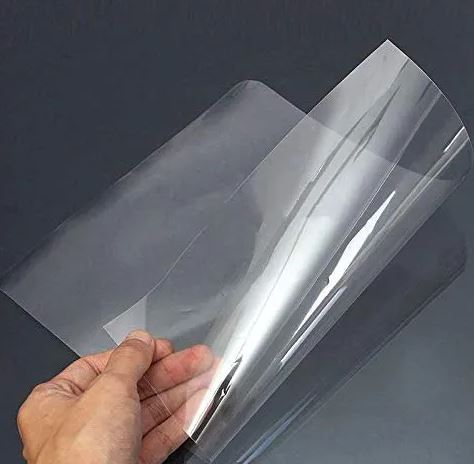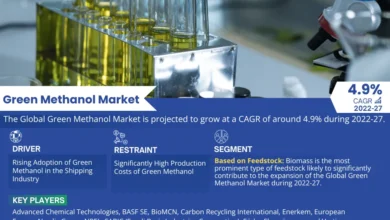Buy Plastic Sheets online at Best Prices in India

Plastic sheets are a ubiquitous and versatile material that finds numerous applications across various industries and everyday use scenarios. From construction and manufacturing to DIY projects and packaging, plastic sheets offer a wide range of benefits that make them indispensable. Let’s delve into the world of plastic sheets, exploring their applications, advantages, and why they are preferred in diverse settings.
What Are Plastic Sheets?
Plastic sheets are flat, flexible, and durable materials typically manufactured from polymers such as polyethylene (PE), polypropylene (PP), polycarbonate (PC), polyvinyl chloride (PVC), and acrylic (PMMA). These sheets come in various thicknesses, sizes, and colors, catering to specific application requirements. They are produced through processes like extrusion, molding, or calendaring, ensuring consistency and quality across different types.
Applications of Plastic Sheets
1. Construction and Building Materials
Plastic sheets play a crucial role in the construction industry, offering lightweight, durable, and weather-resistant solutions. They are used for:
- Roofing and Skylights: Translucent plastic sheets like polycarbonate are used in roofing and skylights to allow natural light while providing insulation and protection from UV radiation.
- Wall Cladding: PVC and acrylic sheets are popular for interior and exterior wall cladding due to their aesthetic appeal, easy maintenance, and resistance to moisture and chemicals.
- Insulation: Plastic sheets with insulating properties are used in HVAC ductwork, thermal barriers, and soundproofing applications.
2. Packaging and Transportation
Plastic sheets are widely used in packaging industries for their versatility and protective properties:
- Thermoforming: Sheets like PET (Polyethylene Terephthalate) are used in thermoforming processes to create packaging for food, electronics, and consumer goods.
- Protective Covers: HDPE (High-Density Polyethylene) sheets are used to manufacture protective covers for goods during transportation, offering resistance to impact and environmental elements.
- Shrink Wrapping: PVC and polyolefin sheets are used in shrink wrapping applications to securely package products for retail distribution and storage.
3. Manufacturing and Industrial Applications
In manufacturing and industrial sectors, plastic sheets serve multiple purposes due to their durability and customization capabilities:
- Machine Guards: Polycarbonate sheets are used to create transparent machine guards in manufacturing facilities, offering protection without obstructing visibility.
- Lining and Partitioning: PP and PVC sheets are used for chemical-resistant linings in tanks, partitions in cleanrooms, and barriers in industrial environments.
- Machining Components: Engineering plastics like nylon and UHMW (Ultra-High Molecular Weight Polyethylene) sheets are machined into components for machinery and equipment due to their strength and wear resistance.
4. Agriculture and Horticulture
Plastic sheets are integral to modern agriculture practices, providing solutions for greenhouse construction, crop protection, and irrigation:
- Greenhouse Coverings: Polyethylene and polycarbonate sheets are used as greenhouse coverings to regulate temperature, humidity, and light exposure for optimal plant growth.
- Mulching and Weed Control: LDPE (Low-Density Polyethylene) sheets are used for mulching to conserve soil moisture, suppress weeds, and enhance crop yields.
- Water Management: PVC and HDPE sheets are used in irrigation systems and reservoir liners to prevent water leakage and ensure efficient water management.
Advantages of Plastic Sheets
1. Durability and Longevity
Plastic sheets are renowned for their durability, making them suitable for outdoor and high-traffic applications. They withstand harsh weather conditions, chemicals, abrasion, and impact, ensuring long-term performance and minimal maintenance.
2. Versatility and Customization
Plastic sheets offer versatility in terms of size, thickness, color, and properties. They can be easily cut, shaped, welded, and thermoformed to meet specific requirements, making them adaptable for diverse applications across industries.
3. Lightweight and Easy to Handle
Compared to traditional materials like glass and metal, plastic sheets are lightweight, which simplifies handling, transportation, and installation. This characteristic also reduces structural support requirements and overall project costs.
4. Cost-Effectiveness
Plastic sheets are cost-effective solutions for various applications, offering lower material costs compared to alternatives like metal or glass. They also contribute to energy savings in construction due to their insulation properties.
5. Chemical and Environmental Resistance
Plastic sheets exhibit resistance to chemicals, moisture, corrosion, and UV radiation, making them suitable for outdoor and harsh environment applications. They are inert materials that do not react with most substances, ensuring product integrity and safety.
Choosing the Right Plastic Sheet
When selecting a plastic sheet for your project, consider the following factors:
- Material Type: Choose a material (e.g., PVC, polycarbonate, acrylic) based on the application’s requirements for strength, flexibility, transparency, and chemical resistance.
- Thickness: Determine the appropriate thickness based on the application’s structural and durability needs.
- Color and Finish: Select a color and finish (e.g., glossy, matte) that aligns with aesthetic preferences and functional requirements.
- Regulatory Compliance: Ensure that the chosen material complies with industry standards and regulations, especially for applications involving food contact, healthcare, and safety.
1. Bio-based and Recycled Materials
Environmental sustainability is a growing concern globally, prompting the development of plastic sheets made from bio-based and recycled materials. Companies are exploring options like bioplastics derived from renewable sources such as corn starch, sugarcane, or even algae. Additionally, advancements in recycling technologies allow for the production of plastic sheets using post-consumer and post-industrial waste, reducing environmental impact and promoting circular economy practices.
2. Smart and Functional Materials
Plastic sheets are increasingly integrated with smart technologies to enhance functionality and performance in various applications:
- Self-healing Materials: Researchers are exploring self-healing polymers that can repair minor damages automatically, extending the lifespan of plastic sheets in high-stress environments.
- Antimicrobial Properties: Plastic sheets infused with antimicrobial agents inhibit the growth of bacteria and fungi, making them ideal for applications in healthcare facilities, food processing, and cleanroom environments.
- Conductive and Insulating Properties: Advanced plastics are engineered with conductive or insulating properties for applications in electronics, aerospace, and automotive industries, enabling efficient energy management and electromagnetic shielding.
3. Nanotechnology and Surface Coatings
Nanotechnology is revolutionizing the surface properties of plastic sheets, enhancing their performance and durability:
- Hydrophobic and Oleophobic Coatings: Nanocoatings make plastic sheets water-repellent and resistant to oils, enhancing their resistance to staining and facilitating easier cleaning.
- UV Protection: Nanoparticles can be incorporated into plastic sheets to provide UV protection, extending their lifespan and maintaining optical clarity in outdoor applications.
- Anti-fogging Properties: Nanomaterials are used to create anti-fog coatings on plastic sheets, improving visibility and safety in humid or temperature-variable environments.
4. 3D Printing and Customization
Advancements in additive manufacturing technologies, such as 3D printing, are revolutionizing the customization of plastic sheets:
- Prototyping and Rapid Tooling: 3D printing allows for rapid prototyping of plastic sheet designs, enabling quick iteration and validation of concepts before mass production.
- Complex Geometries: Plastic sheets can be 3D printed into complex shapes and structures that are difficult or impossible to achieve with traditional manufacturing methods.
- Personalization: Customizable features such as textures, patterns, and embedded functionalities can be integrated directly into 3D printed plastic sheets, catering to specific design preferences and functional requirements.
5. Lightweight and High-Performance Composites
Plastic sheets are increasingly being combined with other materials to create lightweight yet strong composite materials:
- Carbon Fiber Reinforcements: Plastic sheets reinforced with carbon fiber or other high-performance fibers offer exceptional strength-to-weight ratios, making them ideal for applications in aerospace, automotive, and sporting goods industries.
- Glass Fiber Composites: Glass fiber-reinforced plastic sheets provide enhanced stiffness and impact resistance, suitable for structural components in construction and marine applications.
- Hybrid Materials: Hybrid composites combining plastics with metals, ceramics, or natural fibers offer tailored properties such as thermal conductivity, electrical insulation, and acoustic damping.
Conclusion
Plastic sheets are indispensable materials that offer a multitude of benefits across various industries and applications. Their durability, versatility, and cost-effectiveness make them preferred choices for construction, packaging, manufacturing, agriculture, and more. Whether you’re looking to enhance building aesthetics, protect goods during transportation, improve agricultural yields, or optimize industrial processes, plastic sheets provide reliable solutions that meet diverse needs effectively. Embrace the versatility of plastic sheets and explore their limitless possibilities in transforming your projects and operations for the better.



